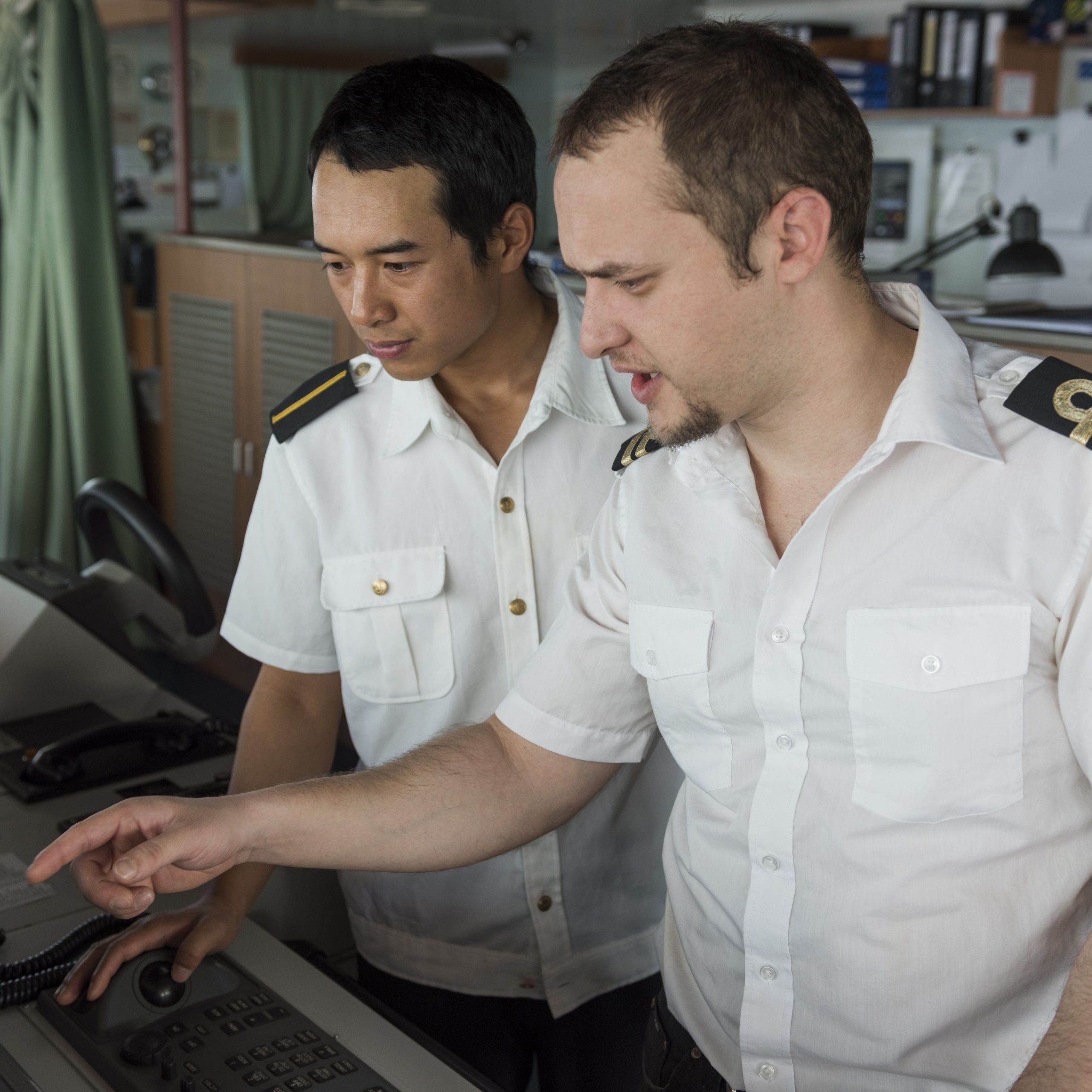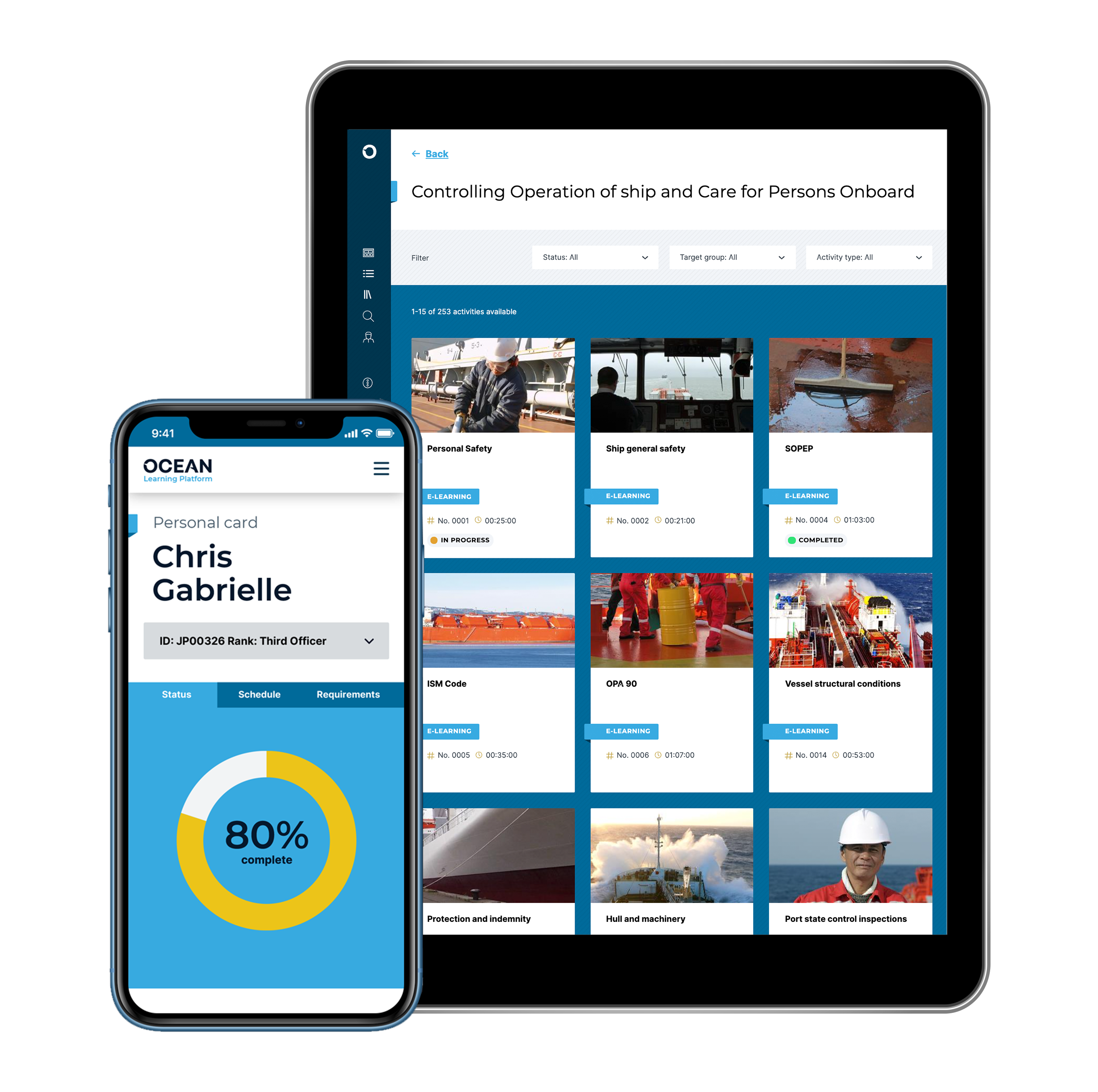The benefits of competency management for crewing departments, maritime recruitment and HR
Crewing departments, HR teams and anyone involved in the recruitment and retention of mariners are facing increased costs and competition. The availability of skilled and qualified seafarers is falling further behind demand, driving up the cost of recruitment and the value of growing and retaining the quality seafarers that are already within organisations.
As our industry becomes more dependent on technology, the qualities and skillsets we look for in our mariners are increasingly similar to those in shoreside and non-maritime roles, which sees us competing for talent in a much broader market. Increased competition and cost of skilled seafarers adds more weight to the arguments for developing our professionals in role and highlights the value of a more mature HR function within shipping companies. Being able to assess existing talent, identify gaps or shortfalls, and plan to build capacity for the future, is critical to controlling costs today and reducing the chance of surprises in the future.
Uncertainty also hangs in the air in the form of the ongoing pandemic. Beyond the challenges this situation presents in the here and now, it is clear that the full impact of COVID-19 on our mariners is still unknown and will undoubtably have an impact on the way the shipping industry approaches crew welfare and recruitment for years to come.
Highlights
In this article we highlight the major benefits that competency management offers and the factors that are driving crewing, recruitment and HR teams to implement competency management systems, including:
- Visibility on existing levels of competency
- Reduced training and assessment load on seafarers
- Increased seafarer engagement with training
- A clear progression pathway for seafarers
- Lower training and recruitment costs
CMS as a skills audit
A Competency Management System (CMS) enables organisations to perform a skills audit and get a snapshot of the current competence levels in the business. Such an audit will show areas of strength and potentially highlight problem areas. For some, the risk of such a system shining a light on deficiencies they would prefer to keep hidden has been a barrier to implementation; for others, the work involved to implement a CMS has put them off. Businesses have now decided that any effort needed to ensure their people are competent is far outweighed by the cost of the person not being able to do their job safely or effectively; either in lost time or the costs associated with an incident.
CMS as a tool for seafarer recognition
By its nature, competency management is centred around the work that seafarers are already performing. By collecting a record of competency in a single place, a CMS shines a light on all of the great work that seafarers do every day. The value this level of visibility and recognition should not be underestimated.
As CMS is designed around the skills, knowledge and behaviours that are essential to the role a seafarer is employed to perform, it is a way of capturing and highlighting excellence rather than an additional burden.
CMS as a tool for succession planning
Having a view of the competency level of the mariners within an organisation, paired with a plan of your current and future requirements, provides a starting point from which crewing and training teams can make effective training and recruitment decisions.
CMS for non-technical skills
In addition to technical skills, an effective seafarer possesses a broad range of traits that fall under the umbrella of “soft skills”. The ability to assess situations, problem solve, make good decisions and communicate effectively are extremely valuable and sought after.
Competency Management Systems, utilising a framework such as BCAV, can be used to assess ‘soft skills’, or behavioural competencies. As a CMS is designed to support a culture of continuous on-the-job assessment, behavioural assessments can be made when situations present themselves naturally.
CMS providing consistency of evaluations
The consistency that CMS brings to evaluations is beneficial on multiple fronts. Firstly, it gives shore-side teams confidence that the results they are seeing from each vessel or assessor are comparable. Additionally, the consistency and clearly defined criteria used for assessments is seen as a big positive by those being assessed. By removing room for interpretation, as well as possible favouritism or discrimination, competency management systems are viewed as fair by seafarers.
CMS reduces costs related to training
As a competency management system highlights both where people are competent already, and the areas where proficiencies are lacking, training programmes can be applied in a much more targeted and cost-effective way. By freeing people up from studying in areas they are already proficient, they have more time to focus on their role, and can reduce the amount spent on training by eliminating time and money spent on superfluous courses, studying and testing.
CMS as an effective tool for supporting career progression
As a competency management system contains a clear set of competencies for a given role or rank, a seafarer can clearly see in which areas they need to be competent in order to be considered for promotion. This visibility gives seafarers the confidence that they are in the driving seat of their career progression – they know what they need to do to be ready to advance. Employers that offer a clear path for advancement are always considered more favourably, leading to better retention and lower acquisition costs.
In summary
Maritime recruiters and HR teams face a number of challenges unique to the industry and to the nature of the working environment. With constant pressured to reduce the cost of recruiting and retaining crew, and with competition in the market driving up the price of new hires, the need to identify talent gaps, transfer knowledge, and grow skills internally has never been so valuable.
Contact us today to learn how competency management can help you train and retain your people more cost-effective
Interested in implementing a CMS? Use the below button to get our guide to best practices
Why choose Ocean CMS?
- We provide bespoke implementations, tailored to your business needs
- We offer a phased approach, allowing you to start small, and scale up as you see the need
- We are pioneers in competency management and have the experience to help navigate you from CMS implementation through to success.
All the content you need to get started today
To learn more about our Competency Management System
Discover Ocean Learning
Transform your business today with the power of e-learning.
Explore our solutions
Competency Management System
Rapid E-Learning
Performance Appraisal
Pulse Survey
OLP App
The ultimate in maritime e-learning. Accessible, repeatable, measurable – a learning solution for the 21st century vessel, available wherever you are in the world.
Virtual Classroom
Cloud Simulation
Training formats explained
Pricing
Explore Ocean Learning Library
Certified Maritime Training Courses


Powered by the most recognised providers of e-learning in the maritime world.
Get peace of mind selecting teams you can entrust with the care of your people, the environment, cargo and vessels.
Assessment Solutions
Crew Evaluation System (CES)
Marlins English Language Testing
Facet5 Personality Testing
Ability Profiling APRO
Remote Proctoring AI
Our crew management solutions provide comprehensive coverage of the entire maritime HR function of today’s commercial vessel operator.
Crew Management Solutions
COMPAS
Our fleet management solutions empower operational teams with insights and workflows that drive improved vessel performance.
Fleet Management Solutions
TM Master
Resources
News
Insights
Events
About us
Who we are
Our Solutions
Why choose us?
Board of Directors
Executive Team


